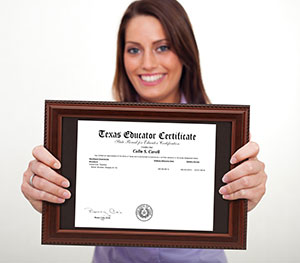Mentor / Mentoring
For an alternative certification program to be successful, mentoring must take place between the teaching intern and a mentor teacher. Most alternative teaching certification programs have some form of mentoring program. It allows the teaching intern to have further guidance once they begin their one year teaching internship. By having a mentor, a teaching intern eliminates much of the frustration of trial and error in their first year of teaching. The mentor can provide valuable insight and resources to the teachers to allow them to successfully transition into their first year of teaching. Without a mentor, a first year teacher can feel an alienating sense of isolation that could undoubtedly drive first year teachers away from the profession.
Attributes of an effective mentor:
-
Desire to share valuable knowledge, skills and expertise with those they mentor.
-
Help by showing a positive example
-
Expose the recipients to the values and norms of the profession.
-
Feel they are equal to the person they are mentoring
-
Take a personal interest in the success of the mentor
Developing a mentoring relationship is much like any personal relationship developed in trials and tribulations of life. Constant communications and a genuine desire to understand the values of the other individual are paramount. A successful mentor will uphold the values, norms and ethics of the profession. Mentoring relationships should be evolutionary in nature. The mentoring relationship should change over time as the mentor continues to provide valuable knowledge and resources to the recipient. The recipient will sometimes help the mentor grow and flourish in there given profession. This can happen by expanding the mentor’s intellectual horizon and interjecting a youthful energy into the mentoring relationship.
Stages to develop a mentoring relationship:
-
Stage 1 – The mentor and recipient begin to be acquainted with each other. They learn each other’s values, norms and behaviors. Trust is earned by the mentor.
-
Stage 2 – A bond is established and specific goals to be accomplished can be focused upon.
-
Stage 3 – Objectives and goals are satisfied. Mentor will provide guidance and feedback to the recipient.
-
Stage 4 – The relationship will move on to one of colleagues, friends or partners.
One of the main requirements of an alternative certification program is to have a mentor assigned to each teaching intern. The school district where the teaching intern completes their internship will be responsible for choosing a mentor for the first year teacher. The mentor will be paid a monthly fee by the regional or university alternative certification program.
How to select effective mentors:
1. Knowledge of the profession:
a. Value continuous learning
b. Considered to be experts in their field
c. Are enthusiastic about their field
d. Set high standards of achievement for themselves
2. Respected by peers:
a. Good communication skills
b. Appreciate the talents and skills of others
c. Exercise good judgment in making decision for others
d. Committed to interacting with colleagues
e. Enjoy intellectual engagements with colleagues
f. Sensitive to the needs of others










